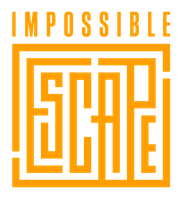Whether you’re about to attempt your first-ever escape room experience, or you have a few escape room events under your belt, one feature remains true: The people you involve in your escape team really do matter.
First, let’s take a look at the ideal number of individuals you should include in your quest. Most escape rooms are designed to work with around 4-6 players. You want as many different minds and hands involved as possible, but without overwhelming a space. For example, a large group of 8 or more people tend to crowd critical areas of a room. So many people concentrated in one space only get in each other’s way rather than discover and solve an important clue. So many different minds and voices relegated to one small space also creates confusion and chaos.
On the other hand, too few members can be a downer too. A couple on a date or a duo of friends who love puzzles might feel overwhelmed when they try to solve an escape room on their own. You simply need more than two or three brains to scan a room, consider possibilities, and think outside the box.
Escape rooms are designed to be challenging, but also fun and entertaining. Too many or too few players can lead to frustration and disappointment. Pick a group of four to six players for optimum enjoyment. For date night, pick one or two additional couples to join you for an evening of escape time adventures. Or, round up some like-minded friends or family members to add to your mix. Remember, a group of 8 or more might be too large, so try to keep your group to no more than six.
Finally, let’s take a look at the type of players in your group. Anyone interested in puzzles and mysteries will have a great time. It’s helpful if group members are familiar with one another already. Also, each member needs to keep a positive attitude! You’re here to have a good time and you’re working toward the same goal.
Assign a member to keep an eye on the clock. If you discover time is ticking away and a puzzle has your group stumped, it’s okay to ask for a clue from the clue master. Wasted time on one clue makes you less likely to succeed in your escape.
You might be surprised to learn that you don’t necessarily need an appointed leader of your group. A dominant personality that tries to take over a game often ends up taking away the fun from other, more introvert players. Keep in mind that every player is important and adds valuable insight with a different perspective.
If you don’t succeed the first time, you can always try again another day. Or, ask your game master if they offer additional time for you to solve your escape room. This is helpful if your group is very close to a great escape. Impossible Escape Hesperia offers additional time after the end of your hour-long escape room adventure. Ask a game master for more time next time you feel you’re close to solving the mystery of The Triton, The Revenge of Mosi, or Casino Heist at Impossible Escape Hesperia.
Who you include in your escape group is important.

Recent Comments